| Listing 1 - 10 of 16 | << page >> |
Sort by
|
Book
ISBN: 0140029133 Year: 1975 Publisher: Harmondsworth : Penguin,
Abstract | Keywords | Export | Availability | Bookmark
 Loading...
Loading...Choose an application
- Reference Manager
- EndNote
- RefWorks (Direct export to RefWorks)
Book
ISBN: 9020233181 Year: 1989 Publisher: Deventer Ankh-Hermes
Abstract | Keywords | Export | Availability | Bookmark
 Loading...
Loading...Choose an application
- Reference Manager
- EndNote
- RefWorks (Direct export to RefWorks)
Bhagavadgita --- yoga --- bezinning --- Arjuna --- Mahabharata --- Krsna
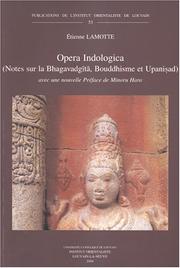
ISSN: 00761265 ISBN: 9042915463 2877238326 9789042915466 Year: 2004 Volume: 53 Publisher: Louvain-la-Neuve: Leuven: Université catholique de Louvain, Institut orientaliste, Peeters,
Abstract | Keywords | Export | Availability | Bookmark
 Loading...
Loading...Choose an application
- Reference Manager
- EndNote
- RefWorks (Direct export to RefWorks)
Boeddhisme --- Bouddhisme --- Hindoeïsme --- Hindouisme --- Academic collection --- Bhagavadgita --- Upanisad
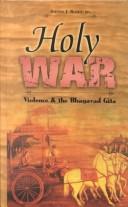
ISBN: 0937194441 093719445X Year: 2002 Publisher: Hampton Deepak
Abstract | Keywords | Export | Availability | Bookmark
 Loading...
Loading...Choose an application
- Reference Manager
- EndNote
- RefWorks (Direct export to RefWorks)
Violence --- -Just war doctrine --- Religious aspects --- -Hinduism --- Bhagavadgita --- -Criticism, interpretation, etc.
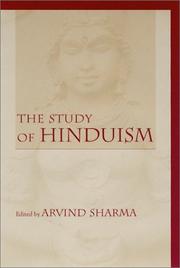
ISBN: 1570034494 Year: 2003 Publisher: Columbia University of South Carolina Press
Abstract | Keywords | Export | Availability | Bookmark
 Loading...
Loading...Choose an application
- Reference Manager
- EndNote
- RefWorks (Direct export to RefWorks)
Hinduism --- Study and teaching --- Vedic Hinduism --- medieval devotional traditions --- India's epics --- the Puranas --- the Bhagavadgita --- modern Hinduism
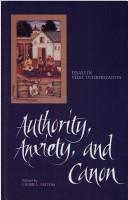
ISBN: 079141938X 9780791419380 Year: 1994 Publisher: Albany (N.Y.): State university of New York press,
Abstract | Keywords | Export | Availability | Bookmark
 Loading...
Loading...Choose an application
- Reference Manager
- EndNote
- RefWorks (Direct export to RefWorks)
Book
ISBN: 9029005130 Year: 1977 Publisher: Amsterdam : Meulenhoff,
Abstract | Keywords | Export | Availability | Bookmark
 Loading...
Loading...Choose an application
- Reference Manager
- EndNote
- RefWorks (Direct export to RefWorks)
Book
ISBN: 285076020X 9782850760204 Year: 1976 Publisher: Paris: Dervy,
Abstract | Keywords | Export | Availability | Bookmark
 Loading...
Loading...Choose an application
- Reference Manager
- EndNote
- RefWorks (Direct export to RefWorks)
Bhagavadgitâ --- Bhagavadgītā --- Bhagavadgītâ --- Bhagavadgītā. --- Gita (Bhagavadgītā) --- Bhagavad Gītā --- Bhagvad Gita --- Bagvat Gītā --- Mahābhārata. --- Bagawad Gita --- Bkhagavadgita --- Bhagavada Gita --- Bhagavat Gītā --- Po-chia-fan ko --- Bogafan ge --- Bagabadŭ gitʻa --- Thespesion melos --- Almi Krishnae et Arjunae
Book
ISBN: 9781139524018 9781107033955 1139524011 9781107056008 1107056004 1107033950 1107054915 9781107054912 1107058287 9781107058286 1107059585 9781107059580 1107070201 1107057094 Year: 2013 Publisher: Cambridge : Cambridge University Press,
Abstract | Keywords | Export | Availability | Bookmark
 Loading...
Loading...Choose an application
- Reference Manager
- EndNote
- RefWorks (Direct export to RefWorks)
The Bhagavad Gita's philosophical and political significance remains forever contemporary. In this volume a group of leading historians reflect on the significance of the Bhagavad Gita for political and ethical thinking in modern India and beyond. These essays contribute new perspectives to historical, contemporary and global political ideas. Violence and nonviolence, war, sacrifice, justice, fraternity and political community were constitutive of India's political modernity, and it was to these questions that Indian public figures turned their attention in the nineteenth and twentieth centuries. Oriented towards the future, these commentaries and interpretations of a text that locates war as the central problem of human life have detached the Gita from antiquity and made it foundational for India's modernity. The book would be of interest to academic researchers as well as general readers interested in South Asian history, Indian philosophy and religion.
Bhagavadgita -- Criticism, interpretation, etc. --- Bhagavadgita -- History. --- Gandhi. --- Religion --- Philosophy & Religion --- Hinduism --- Bhagavadgītā --- Gita (Bhagavadgītā) --- Bhagavad Gītā --- Bhagvad Gita --- Bagvat Gītā --- Mahābhārata. --- Bagawad Gita --- Bkhagavadgita --- Bhagavada Gita --- Bhagavat Gītā --- Po-chia-fan ko --- Bogafan ge --- Bagabadŭ gitʻa --- Thespesion melos --- Almi Krishnae et Arjunae --- Criticism, interpretation, etc. --- Bhagavadgīt
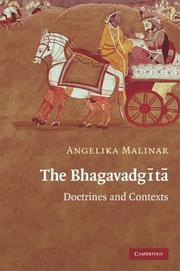
ISBN: 9780521883641 0521883644 9780511488290 9780521122115 9780511379253 0511379250 0511488297 1107185939 1281243809 9786611243807 0511378386 0511377509 0511376561 0511375034 0521122112 9780511377501 Year: 2007 Publisher: New-York: Cambridge university press,
Abstract | Keywords | Export | Availability | Bookmark
 Loading...
Loading...Choose an application
- Reference Manager
- EndNote
- RefWorks (Direct export to RefWorks)
The Bhagavadgita is one of the most renowned texts of Hinduism because it contains discussions of important issues such as liberation and the nature of action as well as the revelation of the Krishna as the highest god and creator of the universe. It is included in the ancient Indian Mahabharata epic at one of its most dramatic moments, that is, when the final battle is about to begin. In contrast to many other studies, this book deals with the relationship between the Bhagavadgita and its epic contexts. On the basis of a thorough analysis of the text Angelika Malinar argues that its theology delineates not only new philosophical concepts and religious practices but also addresses the problem of righteous kingship and appropriate use of power. Malinar concludes by considering the Bhagavadgita's historical and cultural contexts and those features of the text that became paradigmatic in later Hindu religious traditions.
Hinduism --- Hindouisme --- Sacred books --- Doctrines --- Livres sacrés --- Bhagavadgit*a --- Criticism, interpretation, etc. --- Livres sacrés --- Bhagavadgīt*a --- Bhagavadgītā --- Doctrines. --- Bhagavadgīt --- Bhagavadgītā --- Gita (Bhagavadgītā) --- Bhagavad Gītā --- Bhagvad Gita --- Bagvat Gītā --- Mahābhārata. --- Bagawad Gita --- Bkhagavadgita --- Bhagavada Gita --- Bhagavat Gītā --- Po-chia-fan ko --- Bogafan ge --- Bagabadŭ gitʻa --- Thespesion melos --- Almi Krishnae et Arjunae --- Arts and Humanities --- Religion --- Bhagavadgita
| Listing 1 - 10 of 16 | << page >> |
Sort by
|

 Search
Search Feedback
Feedback About UniCat
About UniCat  Help
Help News
News